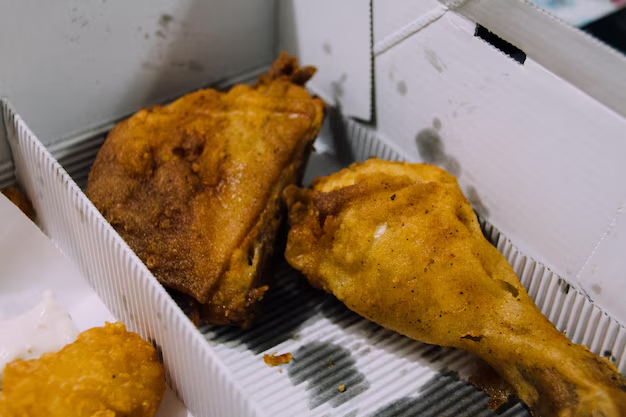How Long Does Baked Chicken Last in the Fridge? A Comprehensive Guide to Safe Storage and Maximizing Freshness 🍗
Sitting down to a delicious, freshly baked chicken dinner offers one of life’s simple yet profound pleasures. But what happens when you have leftovers? Understanding how long you can safely store baked chicken in the refrigerator is essential to avoid food waste and ensure food safety. This guide will walk you through everything you need to know to keep your baked chicken fresh, delicious, and safe to eat.
The Shelf Life of Baked Chicken in the Refrigerator
Basic Guidelines for Storing Baked Chicken
When stored properly, baked chicken typically lasts 3 to 4 days in the refrigerator. Proper storage involves placing the chicken in shallow, airtight containers or tightly wrapping it with aluminum foil or plastic wrap. This practice prevents air exposure, which can lead to spoilage.
Factors That Affect Shelf Life
Several factors can influence how long your baked chicken remains safe and tasty, including:
- Temperature: Your refrigerator should be set to a temperature of 40°F (4°C) or below. Higher temperatures can lead to quicker spoilage.
- Storage Method: The use of airtight containers or proper wrapping is crucial to extend freshness.
- Initial Quality: The freshness of the chicken before cooking and the conditions in which it was cooked can impact its overall shelf life.
📌 Quick Tips for Great Storage:
- Ensure your fridge maintains a consistent temperature at or below 40°F.
- Use sealed containers or wraps to minimize air exposure.
- Store chicken within two hours of cooking to prevent bacterial growth.
Signs That Your Baked Chicken Has Gone Bad
Visual Clues
- Color: Fresh baked chicken should appear white to light brown. If it turns gray or greenish, it's a sign of spoilage.
- Texture: If the chicken develops a slimy or sticky feel, it's time to dispose of it.
Smell Test
A strong, unpleasant odor is a dead giveaway that baked chicken has surpassed its prime. Always rely on your senses; if it smells off, it's usually best not to taste it.
Taste Alteration
Although tasting questionable chicken is not advisable, significant changes in flavor can indicate spoilage.
🛑 Key Reminders:
- When in doubt, throw it out. Trust your senses of sight and smell.
- Do not consume chicken that shows any signs of spoilage.
Best Practices for Reheating Baked Chicken
Safe Reheating Techniques
To ensure safety and palatability, follow these reheating methods:
- Oven: Preheat the oven to 350°F (175°C). Place the chicken in a baking dish, adding a splash of broth or water to prevent it from drying out, and cover. Reheat for about 20 minutes or until heated through.
- Microwave: Use a microwave-safe dish, cover with a microwave-safe lid or microwave wrap, and heat on medium until warmed.
- Stovetop: Sauté pieces over medium heat until heated evenly.
Reheating Tips for Quality
- Add moisture to avoid dryness, such as a bit of broth or water.
- Avoid overheating to preserve flavor and texture.
Freezing Baked Chicken for Extended Shelf Life
How to Freeze Baked Chicken
If you won't consume your leftovers within a few days, freezing is an excellent option. Here’s how:
- Cool Quickly: Allow chicken to cool completely.
- Portion Control: Divide chicken into desired portion sizes for easy thawing.
- Wrap and Seal: Use heavy-duty aluminum foil, freezer wrap, or bags to prevent freezer burn.
Thawing and Reheating Frozen Baked Chicken
- Thawing: Transfer from freezer to fridge for 24 hours. For quick thawing, use the microwave or cold-water method if you plan to cook immediately.
- Reheating: Use any of the reheating methods mentioned above once thawed.
❄️ Freezing Tips:
- Label and date your packages to manage your frozen goods efficiently.
- Consume frozen chicken within 2 to 6 months for best quality.
Frequently Asked Questions About Baked Chicken Storage
Can You Freeze Baked Chicken On the Bone?
Yes, but it's better to debone the chicken for ease of storage and quicker thawing. If left on the bone, ensure it's well-protected against freezer burn.
Are There Nutritional Changes in Stored Chicken?
Nutrient degradation is minimal when stored properly, but reheating can sometimes reduce vitamin content slightly. Proper thawing and reheating can minimize nutritional loss.
Preventing Common Mistakes
- Do not refreeze chicken that has already been thawed.
- Avoid letting chicken sit at room temperature for over two hours.
Ensuring Food Safety and Quality 🍽️
At the heart of understanding baked chicken's shelf life is the importance of food safety. Be vigilant about storage procedures to protect yourself and your loved ones from foodborne illnesses. Paying attention to quality is not just about preventing waste—it's about ensuring your meals are as enjoyable and healthy as possible.
Quick Recap with Tips for Safe Chicken Storage:
- Store at ≤40°F: Keeps your chicken safe from bacteria.
- Use Airtight Containers: Minimizes exposure to air.
- Freeze if Necessary: Extends life beyond 4 days.
- Reheat Safely: Maintain moisture and flavor when reheating.
By following these guidelines, you can enjoy delicious baked chicken with peace of mind. Every meal is an opportunity to savor your culinary creations, knowing that you have stored and handled them with the utmost care. Enjoy your cooking, and relish each bite safely! 🍗

